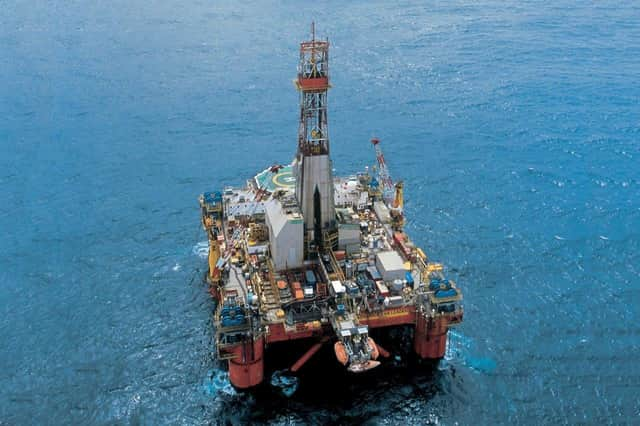North Sea operator Cairn Energy can handle ‘much lower’ prices - analysts


In common with many other players in the sector, shares in the Edinburgh-based company have almost halved since the impact of Covid-19 saw oil prices plunge.
Brent crude recently fell to an 18-year low of under $25 a barrel, less than half the level seen at the start of the year.
Advertisement
Hide AdAdvertisement
Hide AdBut in an upbeat assessment of Cairn’s prospects, analyst Thomas Martin at Numis believes it can withstand a period of much weaker oil pricing – even below $15 a barrel if necessary.
Taking account of Cairn’s steps to reduce spending he said Cairn is well-funded to press ahead with its business commitments including a major project in Senegal.
Although Martin argues a partial sell-down of its Senegal interests would be favourable he said “Cairn remains under no financial pressure to do so in the near-term”.
He said oil prices would need to be below $30 a barrel for three years before net debt becomes an issue.
Under such a price scenario he pointed out most of the global oil industry “would struggle to deliver value”.
“We believe Cairn is relatively well-positioned to weather a short, sharp oil price shock.
“In all reasonable low oil price scenarios net debt remains well below the expected borrowing ceiling in the near-term.”
The broker has set a target price on Cairn’s shares of 180p compared to the 108p currently, based on oil prices averaging $35 this year and rising to $45 in 2021 and $60 in 2022.
Advertisement
Hide AdAdvertisement
Hide AdAt the end of last month Cairn said it was cutting its UK spending plans by at least £16 million as part of wider plans to reduce costs across the business in light of Covid-19.
It said its 2020 capital expenditure on its UK producing assets is expected to be below £37m, reduced from the original forecast of £53m due to cost savings identified and the deferral of certain activities planned for the Catcher fields.
It also expects spending on its Sangomar joint venture partnership in Senegal to come in below £271m, reduced from the original forecast of £329m.
All Cairn’s forward spending on exploration and appraisal activity is now being deferred with the exception of ongoing operations on the Eni-operated Ehecatl well in Mexico. Capital expenditure on exploration in 2020 is now anticipated to be approximately £82m, down from an initial estimate of £123m.
In total Cairn has cut its 2020 spending plans by 23 per cent.
At the time chief executive Simon Thomson stressed the company’s balance sheet remains strong.
“We are proactively reviewing options for further capital expenditure savings and deferrals, whilst retaining the financial flexibility to add value on an ongoing basis,” he said.
A message from the Editor:
Thank you for reading this story on our website. While I have your attention, I also have an important request to make of you.
Advertisement
Hide AdAdvertisement
Hide AdWith the coronavirus lockdown having a major impact on many of our advertisers - and consequently the revenue we receive - we are more reliant than ever on you taking out a digital subscription.
Subscribe to scotsman.com and enjoy unlimited access to Scottish news and information online and on our app. With a digital subscription, you can read more than 5 articles, see fewer ads, enjoy faster load times, and get access to exclusive newsletters and content. Visit https://www.scotsman.com/subscriptions now to sign up.
Our journalism costs money and we rely on advertising, print and digital revenues to help to support them. By supporting us, we are able to support you in providing trusted, fact-checked content for this website.
Frank O'Donnell
Editorial Director
Comments
Want to join the conversation? Please or to comment on this article.